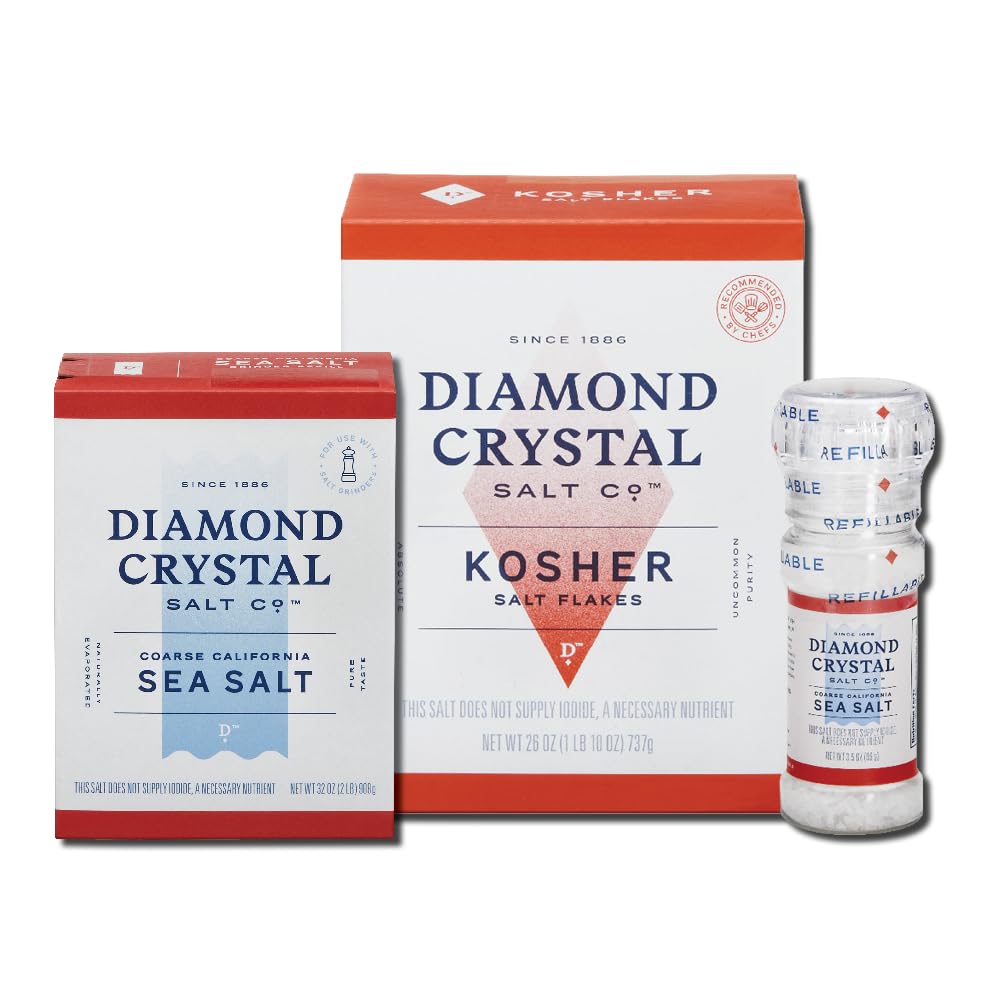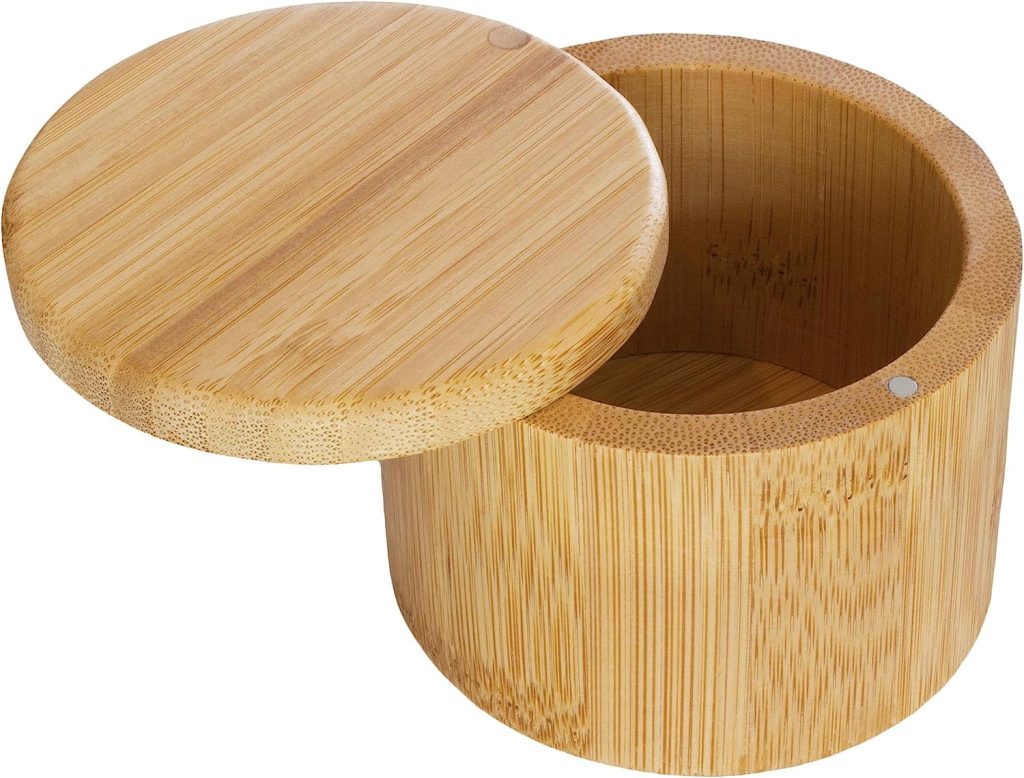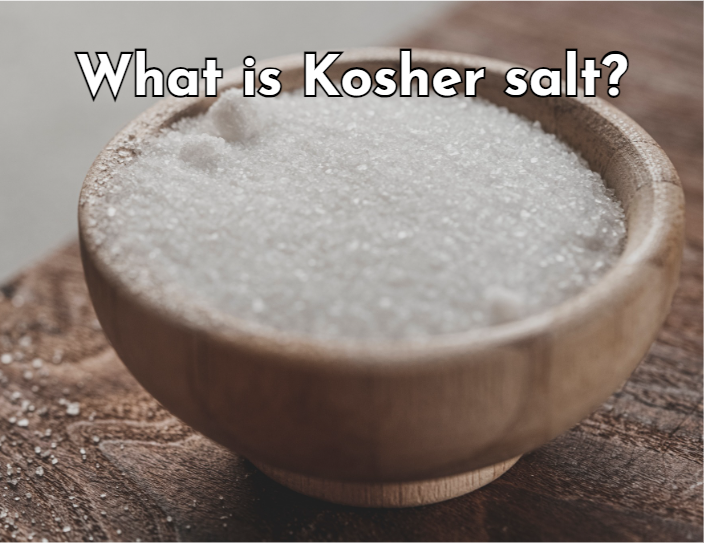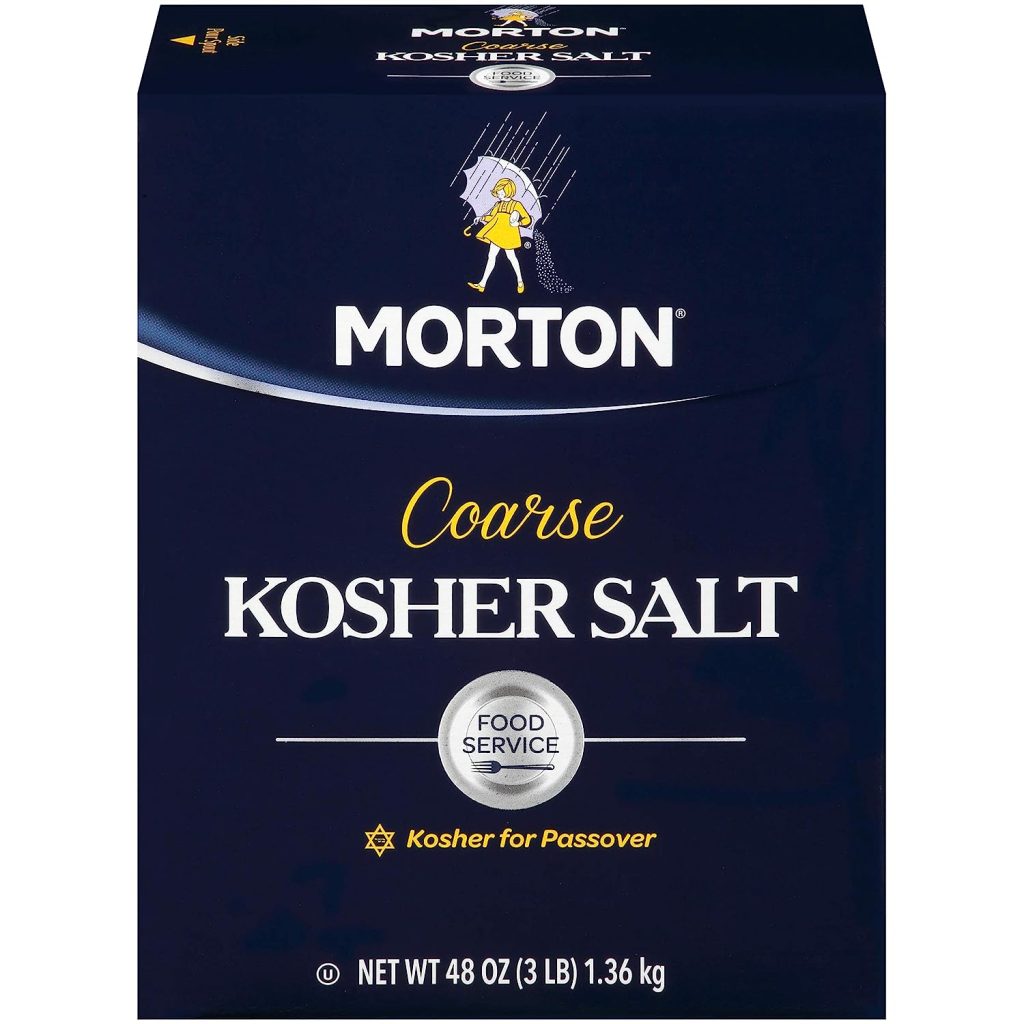In the world of culinary enchantment, where flavors are crafted and cuisines come alive, there exist ingredients that hold the power to elevate dishes to new heights. One such ingredient is kosher salt, a staple in many kitchens and a go-to for chefs and home cooks alike.
While it might seem like just another type of salt, kosher salt boasts unique characteristics that set it apart from its regular counterpart. In this exploration of flavor, we delve into the fascinating world of kosher salt, uncovering its distinct qualities and unravelling the mysteries behind its name.
also read: Dry vs wet brine which should you choose?
Kosher Salt: The Essence of Texture
Kosher salt is not your average table salt. What sets it apart, right from its name, is the larger, coarser texture of its crystals. This texture difference stems from the way kosher salt is traditionally made. Unlike the fine grains of regular table salt, kosher salt is produced by compacting salt crystals into larger, irregularly shaped flakes. These flakes are more porous and have a less dense structure, allowing them to dissolve more easily on the surface of foods, creating a burst of flavor that dances on the taste buds.
The Koshering Process
Kosher salt’s name also points to its historical role in the process of koshering or preparing meat according to Jewish dietary laws. These laws require the removal of blood from meat before consumption. Kosher salt’s large, coarse crystals are perfect for this process as they draw out moisture and blood from the meat’s surface, aiding in the removal of impurities.
This ability to effectively draw out moisture makes kosher salt a fantastic choice for use in brines and curing, enhancing flavors and textures while ensuring that meats remain juicy and tender.
Culinary Versatility
One of the most alluring features of kosher salt is its versatility in the culinary realm. Its coarse texture and larger crystals make it easy to control the amount you’re adding, whether it’s a pinch for seasoning or a handful for a brine.
Because of its light, flaky nature, kosher salt is ideal for finishing touches on dishes just before serving. Sprinkling it over a perfectly grilled steak or a fresh salad brings an added layer of texture and a pop of saltiness that elevates the dining experience.

Diamond Crystal 3pck Salt Bundle, Kosher Salt
3 pack bundle Kosher salt 26oz, Sea Salt 2LB, Sea Salt 3.5oz Grinder

Bamboo Salt Bamboo Storage Box
Keep table salt, gourmet salts, herbs or favorite seasonings close at hand in this beautiful bamboo salt box, with a magnetic swivel lid
Table Salt vs. Kosher Salt
While both kosher salt and table salt essentially contain the same ingredient – sodium chloride – the differences in texture, processing, and intended use make them distinct from each other. Table salt is heavily processed, resulting in fine, uniform grains. This makes it highly compact and suitable for measuring, making it the ideal candidate for baking and general seasoning.
On the other hand, kosher salt’s unique structure makes it a natural companion for the tasks that require a more delicate touch.
Conclusion
Kosher salt isn’t just a seasoning; it’s a transformative element in the kitchen. Its multifaceted nature, from its role in koshering to its ability to enhance flavors and textures, showcases its culinary prowess. Whether you’re a professional chef or an enthusiastic home cook, having a box of kosher salt in your kitchen can open the door to a world of culinary creativity.
So, the next time you’re exploring flavors, remember the delicate crystals of kosher salt – a remarkable ingredient that whispers tales of tradition and innovation with every sprinkle.

